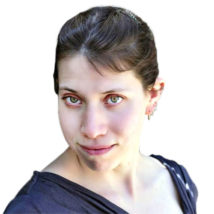
Bethany Brookshire was a longtime staff writer at Science News Explores and is the author of the book Pests: How Humans Create Animal Villains. She has a B.S. in biology and a B.A. in philosophy from The College of William and Mary, and a Ph.D. in physiology and pharmacology from Wake Forest University School of Medicine. She was a 2019-2020 Knight Science Journalism Fellow at MIT, the winner of the Society for Neuroscience Next Generation Award and the Three Quarks Daily Science Writing Award, among others.

All Stories by Bethany Brookshire
-
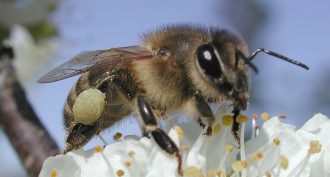 Life
LifeScientists Say: Parthenogenesis
When a baby frog develops from an egg that’s never been fertilized, we call that parthenogenesis.
-
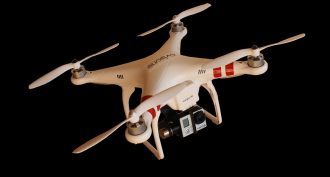
These drones are for the birds
Flying robots represent a great opportunity to observe wildlife. But if scientists want animals to behave naturally, they need to know close we can get before they disturb wild creatures. For that, researchers will need an experiment.
-
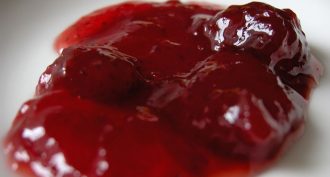 Materials Science
Materials ScienceScientists Say: Colloid
When water hovers in the air as fog and when bits of fat disperse in water as milk, they form a type of substance called a colloid.
-
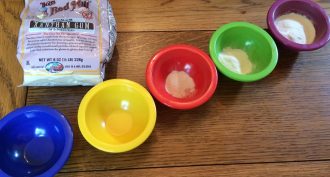
Cookie Science 13: The deal with gluten
To find out how to improve my gluten-free cookies, I learned a lot about what gluten does, and what other baking ingredients might take its place.
-
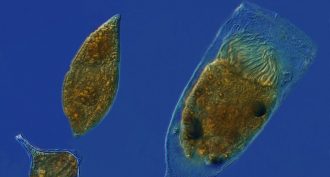 Animals
AnimalsScientists Say: Plankter
Plankton is the word used to describe a collection of these tiny free-floating organisms. This is what you call just one.
-
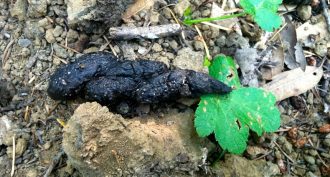
Volunteers scoop poop to learn what animals ate
Growing human populations in the Santa Cruz Mountains of California lead predators to change their ways. To find out how, scientists are dispatching volunteers to scout out scat.
-
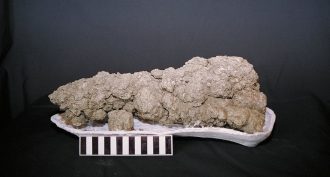 Fossils
FossilsScientists Say: Coprolite
Every living thing and signs of its existence — right down to their wastes — can fossilize under the right conditions. When poop fossilizes, it gets a special name.
-
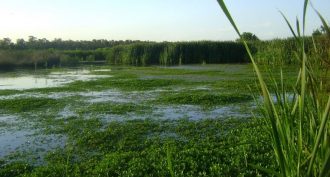
Make 2015 a year of science
Add some science to your new year. Every month has at least one event with a STEM —science, technology, engineering or math — theme. Mark your calendars to learn and celebrate.
-
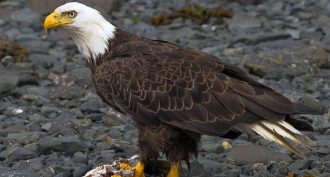 Ecosystems
EcosystemsScientists say: Biomagnify
Chemicals in the environment can build up in an animal’s tissues. Predators who feed on these animals can accumulate more and more of the pollutants, a process known as biomagnification.
-
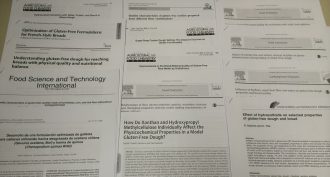
Cookie Science 12: Heading to the library
I have the results of my first experiment. Before I start, I need some new ideas. And for that, I’ll need to read some scientific papers.
-
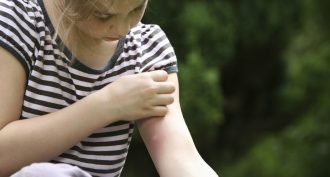 Health & Medicine
Health & MedicineScientists say: Inflammation
When cells are injured, they send out distress signals. The rescuing cells cause more blood to flow to the area, producing inflammation.
-
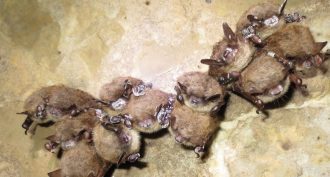 Animals
AnimalsPicture This: Winter brings white noses
White-nose syndrome, caused by a fungus, has killed millions of bats in the eastern United States. Now, scientists show that the disease comes and goes, by season. The finding could help scientists more effectively target any treatments.